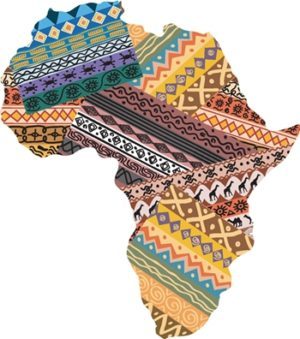The African Higher Education in Emergencies Network (AHEEN) is a networked African Higher Education response to forced displacement on the continent offering university diplomas with a strong employability focus to refugees and internally displaced persons across Africa. Integrative SEL is one of two cross-cutting elective courses that address the specific needs of displaced diploma students enrolled in AHEEN member universities. Their proposed framework integrates social emotional learning (SEL) into advanced academic skills (e.g., engineering) as well as physical education (e.g., athletics) and robust humanities (e.g., applied arts) focused on issues relevant to communities in displacement.

Humanitarian crises profoundly impact youth since they cause long term disruption of every aspect of daily living, including housing, health, sanitation, recreation, and education. Crises can disrupt family relationships, disturb social cohesion, and can create feelings of isolation, uncertainty, fear, anger, loss, and sadness. Long term exposure to a disaster or conflict without appropriate mitigation can be damaging to both physical and mental health. The impact emergencies have on the functioning of families and communities also compromises the development of children and young people. Exposure to adversity can lead to lifelong impairment of learning, behavior, and physical and mental health.
In order to promote the holistic well-being of youth in displacement and to support learning in displacement, the Integrative SEL approach prioritises active prevention and resilience in protracted humanitarian settings. Although the content areas we integrate may at first seem quite disparate, running the gamut from engineering to athletics, in fact they are well-aligned in two important ways:
First, they are situated in and adaptable to the contexts of the learners themselves. Engineering solution spaces are geared towards the local communities’ needs, athletics engage refugees as well as local host community members, and applied arts coursework transforms local narratives into stories, drama and visuals that foster creative expression in students and community members within the local space. Second, the principles of embodied cognition are the mechanisms by which our approach meets the goals of enhanced neuroplasticity, essential for learning and well-being, through integrating body and mind.
Social-emotional well-being and resilience build on overlapping competencies and the Integrative SEL approach seeks to create synergies across the different competencies by activating brain areas that build skills in complementary ways and ensure that all learners have a chance to build SEL skills without the pressure of having to excel in any one area.
International frameworks such as the European Union’s LifeComp framework, or the Kenyan VaLi Framework emphasise the need for cross-cutting and complementary approaches. Our Integrative SEL model employs digital and on-site resources to reach all refugee learners and is fast becoming the cornerstone of our quality higher education in displacement contexts. We carefully analyse each displacement context, engage with refugee-led organisations on the ground to best understand local community needs, adapt our core curriculum in sports, applied arts and localized engineering to the specific needs of each context, train local facilitators to support programming, to then roll out the course. Displacement contexts are characterized by low resources and a relatively high degree of mobility. A student may not remain in the same place for the duration of the course which challenges collaborative learning and team work. We document course delivery using both video and image, which are then integrated into activities students-on-the-move can access and perform on their own and still stay in touch with their peers and course facilitators through a dedicated messaging forum.
Most SEL frameworks align along the most common domains (emotional, social, cognitive, values, perspectives and identity), different programs tend to emphasize one or more domains over others. For the Integrative SEL to enhance SEL skills in displacement contexts considerable emphasis has been placed on collaboration, community and embodied learning, as conflicts and crises negatively affect learning and employing these approaches to build SEL skills sustains learners’ motivation to complete their studies and be connected to their communities.
The session Digital learning & digital well-being in fragile contexts (Session code EMP31) will take place on Thursday, May 12, from 16.45-17.45
Session speakers: Barbara Moser-Mercer, Esther Njeri Kiaritha, Juvenal Mbonihankuye, Mohamed Abdullahi (African Higher Education in Emergencies Network-AHEEN)


















